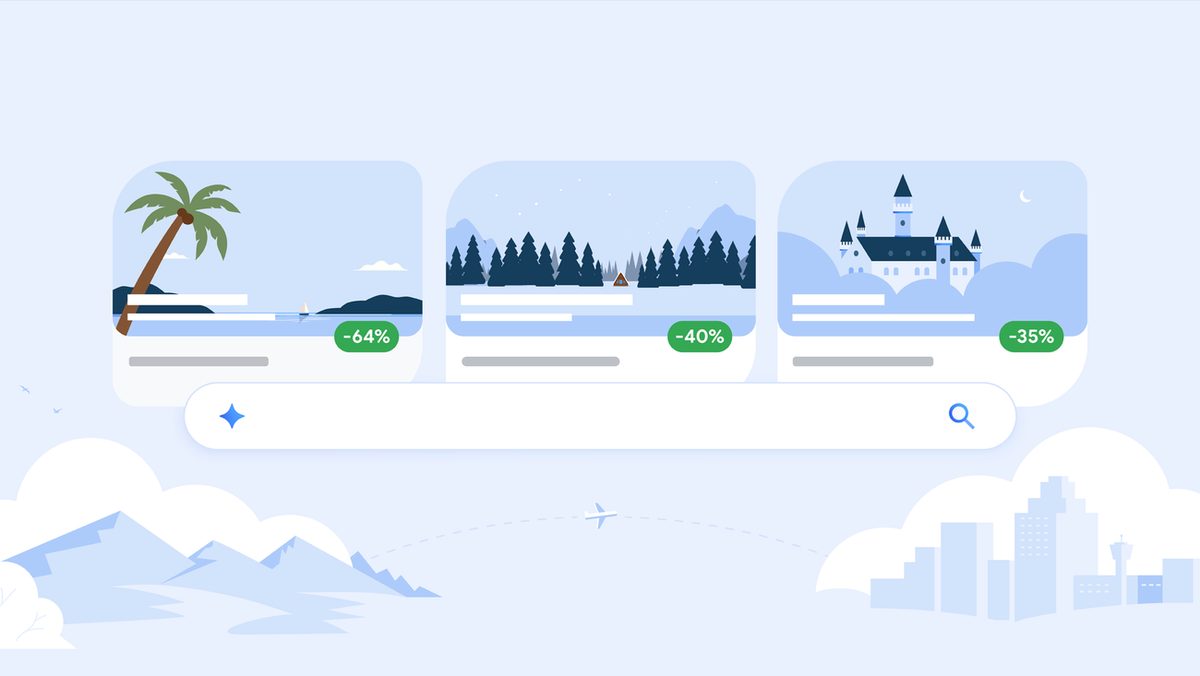Google expands Flight Deals to 200 countries as AI Mode adds full travel planning

Google announced new AI-powered travel features in Search on Monday, expanding the Flight Deals tool globally within Google Flights, adding Canvas for travel planning in AI Mode, and extending agentic booking capabilities to all U.S. users to simplify booking and planning processes.
The Flight Deals tool first launched in August exclusively in the U.S., Canada, and India. This AI-powered search feature operates within Google Flights to identify affordable travel destinations. Users initiate the process by specifying their preferred locations, travel dates, and travel style. The AI then analyzes available options and presents the most cost-effective bargains tailored to those inputs.
Google is now deploying Flight Deals to more than 200 countries and territories around the world. Specific regions gaining access include the U.K., France, Germany, Mexico, Brazil, Indonesia, Japan, and Korea. The expansion incorporates support for over 60 languages, enabling broader accessibility for non-English speakers in diverse markets.
Alongside this rollout, Google introduced enhancements to its AI Mode within Search, integrating the Canvas tool for travel organization. Canvas initially debuted as a feature for constructing study plans and compiling information across multiple sessions in a side panel interface. The tool now extends to travel planning, allowing users to generate structured itineraries directly in AI Mode.
Video: Google
To begin, users describe the type of trip they envision, such as a family vacation or a solo adventure, and select the “Create with Canvas” option. This action generates a comprehensive plan in the Canvas side panel. The plan aggregates real-time data from Search for flights and hotels, incorporates details from Google Maps including photos and reviews, and pulls relevant information from websites across the web, as detailed in Google’s blog post.
Within the plan, users receive targeted suggestions aligned with their criteria. These include hotel comparisons evaluated by pricing and amenities, as well as recommendations for restaurants and activities. The suggestions account for practical factors like travel time from the accommodation to proposed sites.
Canvas supports interactive refinement through follow-up questions. Users can explore tradeoffs, for instance, selecting a hotel nearer to a desired brunch location at the expense of greater distance to preferred hiking trails. This iterative querying helps customize the itinerary based on priorities.
Access to travel planning via Canvas remains limited to desktop users in the U.S. who have opted into the AI Mode experiment through Google Labs. This phased availability ensures testing and refinement before wider distribution.
Google also broadened the agentic capabilities of AI Mode, which enable autonomous actions like bookings. Earlier this year, Labs participants gained assistance for reserving restaurant tables, purchasing event tickets, and scheduling beauty and wellness appointments directly in AI Mode.
These agentic features now extend to all U.S. users, removing the Labs opt-in requirement. For restaurant reservations, users specify preferences including party size, date, time, location, and cuisine type. AI Mode scans multiple reservation platforms to retrieve real-time availability data. It then compiles and presents a curated selection of matching options for user selection.
Google plans forthcoming expansions to allow direct booking of flights and hotels within AI Mode. Users will describe their requirements, enabling the system to display comparable options. Available details will encompass schedules, prices, room photographs, amenities, and reviews to facilitate informed choices.
